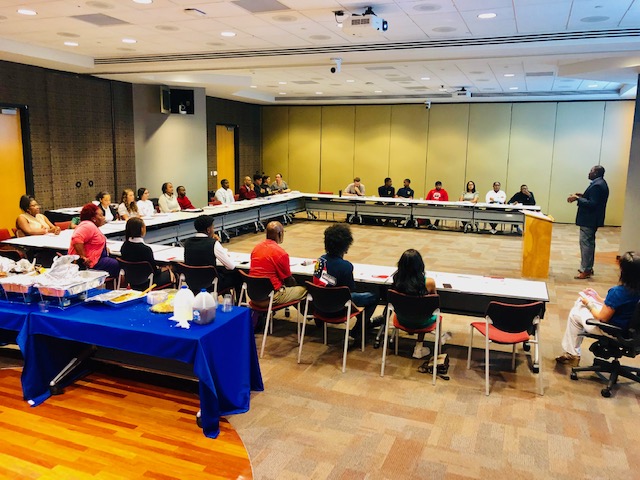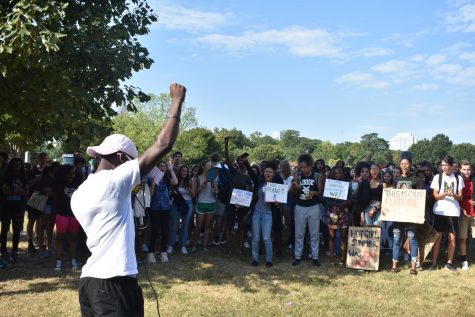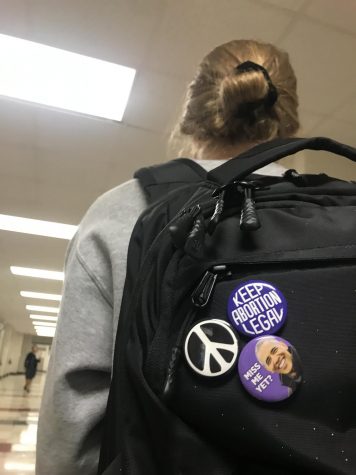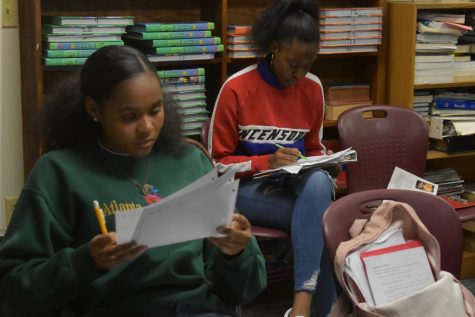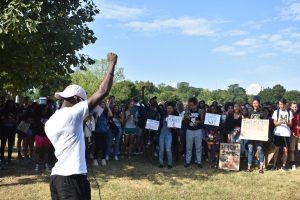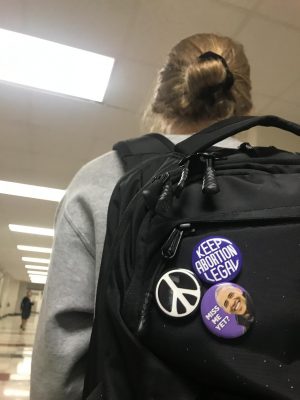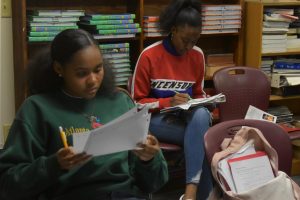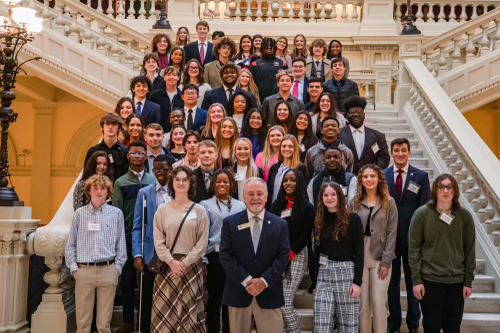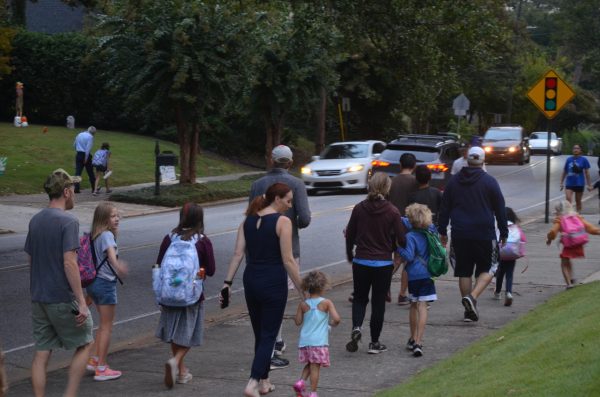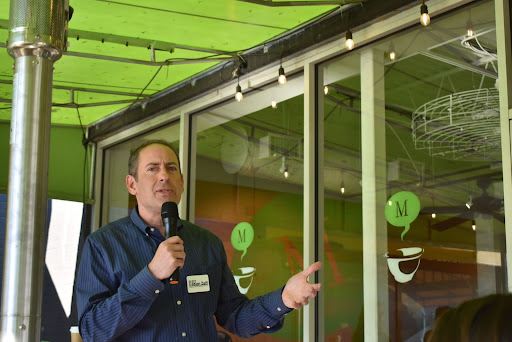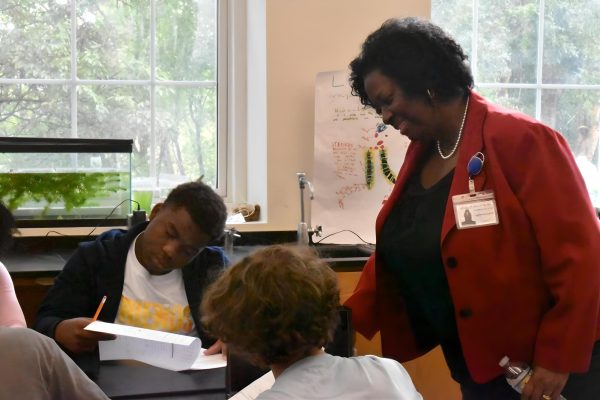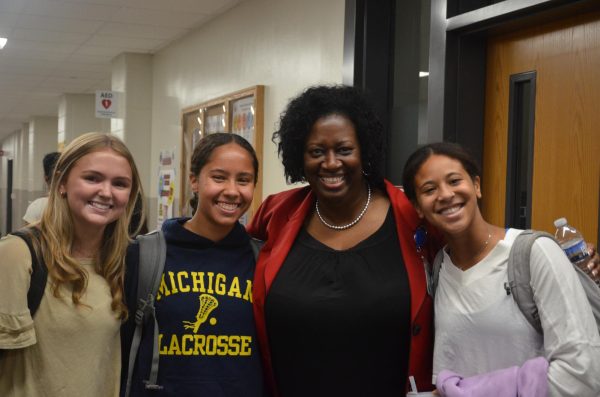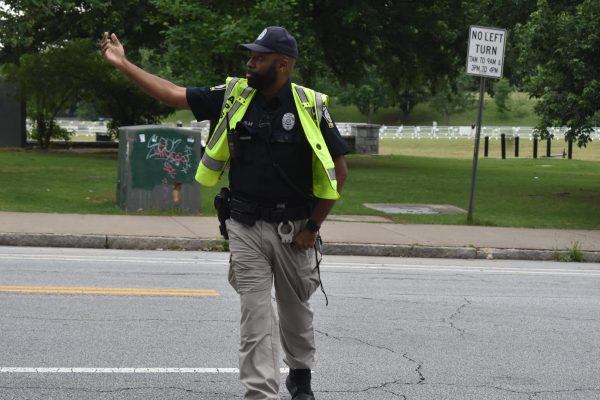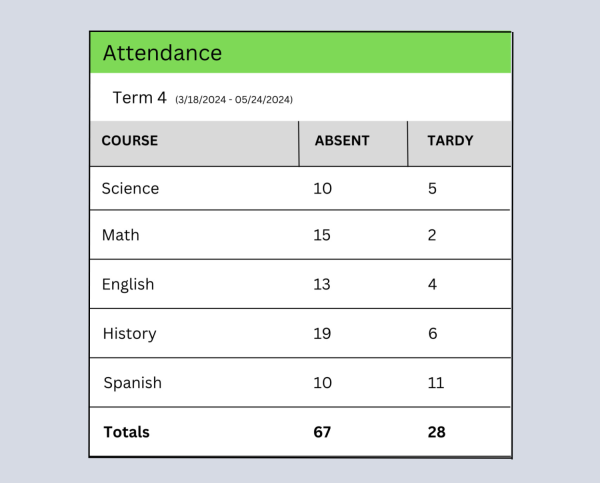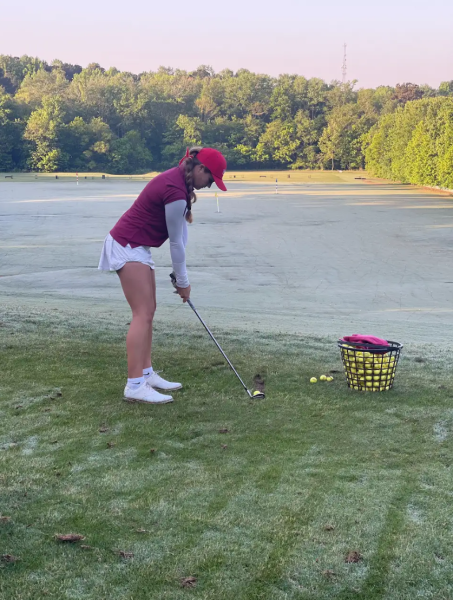New advisory council gives students a voice in district policy making
Image courtesy of Atlanta Public Schools
Atlanta Board of Education Executive Administrator Pierre Gaither speaks to members of the district’s newly-created Student Advisory Council at the group’s Sept. 26, 2019 meeting.
In an effort to encourage student participation in district policy making, the Atlanta Board of Education launched a Student Advisory Council.
Composed of students from each high school in APS, the council was created by legislation that the board passed on June 5, 2017; however, the group did not begin officially meeting until the start of this school year. According to Board Policy BAAA, which created the council, the body acts as the “official liaison between the Board and the APS student body.”
The council first convened on Sept. 26, and soon after, members elected Grady senior Bria Brown as the group’s chair. Brown is joined by another Grady representative, junior Devon Haller. Brown says she hopes the advisory council helps district leaders better understand issues in the schools.
“It’s important for the Board of Education and for the superintendent to know what’s actually going on inside the schools because they’re not in the schools day-to-day,” Brown said.
According to Brown, district administrators in the past have failed to show an adequate understanding of students’ views and concerns. As a member of the council, she hopes to bridge this gap and help policymakers successfully address issues that have long plagued the district.
“Often, there’s a disconnect between the administration and the students, so what the administration does … is put in place policies that don’t really represent the things that actually happen in class,” Brown said. “So, it’s important for us to have a place where we can say the things that are going wrong and have some sway in being able to fix those problems.”
Haller, the junior class president, shares a similar sentiment. Haller hopes to assist in creating tangible change that will impact students’ lives throughout APS.
“I think the student advisory council is a great idea,” Haller said. “It allows student leaders from different schools to come together and collaborate. “I’m really looking forward to sharing some of the ideas that we have discussed here at Grady.”
Haller hopes to work with his peers on a number of issues, including increasing access to birth control, providing better support for LGBTQIA+ students and making the district more environmentally-sustainable.
“The school system is pretty unfair and outdated, and I think we need to do things that will make a better experience for the students,” Haller said. “Those can be small things or major changes.”
The council’s purpose is to gather input from students across the district and communicate it to district leaders, including the superintendent and school board members. The advisory council meets monthly and the chair is tasked with attending each school board meeting in order to report the council’s work.
Pierre Gaither, the school board’s executive administrator, says the student advisory council has been a work in progress since 2017 when the board identified a need for more student input.
After reviewing the steps that other districts have taken to increase student involvement, board members voted to begin the creation of the council before starting a development process that included input from student leaders across APS.
“In early 2018, we brought together SGA presidents to do some of the preliminary work, but this is the very first year that we have a chair, co-chair and officers for this council,” Gaither said.
In just a short time, the Student Advisory Council has already had an impact on district policy making.
“We’ve been able to get some real feedback around policies that the policy review committee has been implementing,” Gaither said. “They’ve also been able to contribute to the superintendent search that’s taking place and strategic planning.”
As for the council’s long-term impact, Gaither hopes the council shows students that their input is valued and empowers them to be more involved in the policies that direct their education.
“We want to make sure that students know they are supported; they are recognized, and that they do have a safe space to be heard as it relates to the decisions that impact them,” Gaither said.
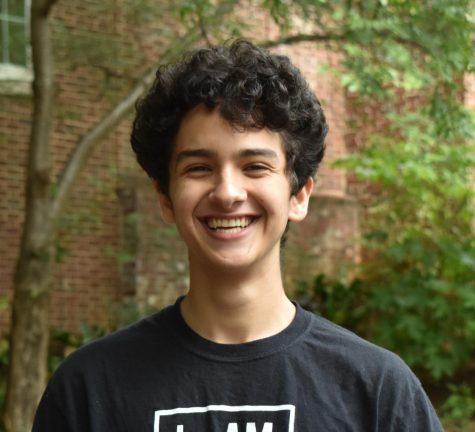
Royce is a Senior in his second year at Grady. He is a member of the Grady Governance Team and is the President of Amnesty International Club.

